 I was an international student at the University of Manitoba from 1981 to 1989, where I completed MA in Political Studies in 1983 and PhD in Anthropology in 1992. In this short piece, I provide glimpses of my experience in Winnipeg as a student during those years. I recall life on the campus, which was full of excitement due to the exposure to new academic ideas and challenges both in and outside the classrooms. The Bangladeshi community was very small at that time, perhaps about 20 families. So, we knew each other well.
I was an international student at the University of Manitoba from 1981 to 1989, where I completed MA in Political Studies in 1983 and PhD in Anthropology in 1992. In this short piece, I provide glimpses of my experience in Winnipeg as a student during those years. I recall life on the campus, which was full of excitement due to the exposure to new academic ideas and challenges both in and outside the classrooms. The Bangladeshi community was very small at that time, perhaps about 20 families. So, we knew each other well.
The Journey
I arrived in Winnipeg in June 1981 on a student visa. In those days, international students were outside the domain of Canada’s targeted annual immigration plan. They were required to renew their visa annually. Today, however, in view of Canada’s skilled immigration policy, international students can work, and change status from ‘student visa’ to ‘immigrant’ even during their study period. My own experience, however, tells a different story. My work with immigrants has convinced me that each migrant’s narrative is unique, individualized, and original, and provides a different storyline. I am currently working on my memoir that describes the journey in detail. The journey transformed me as an academic and a feminist.
Making the Transition
My arrival in June 1981 for the Fall academic session was helpful in making the initial transition from my teaching position in Bangladesh to being an international student. My spouse Zaman, who was already doing his MA in anthropology, was my ‘guide’ to mundane, but necessary tasks – for instance, grocery store to shopping mall, and how to use services available within the university systems, including use of the library. I also visited some pavilions of the Winnipeg Folkloroma, a weeklong multi-cultural programme that raised my understanding of the cultural diversity of Canada.
Professor Louise Sweet, a Marxist scholar, of Anthropology soon became a ‘darling’ to me. She took us to rural Manitoba communities and festivals such as the Stampede in Morris, the farmers’ Harvest Festival in Balmoral, the Mennonite and Hutterite communities, First Nations’ Sun Dance, and the University Pub after her evening seminar class. As a young woman in Bangladesh, a visit to a tea stall was not even permitted for me, let alone a pub! Louise was gracious and allowed me to attend her seminar class on Marxism, where non-registered students were permitted to present and participate. Her generosity and guidance influenced my academic career.
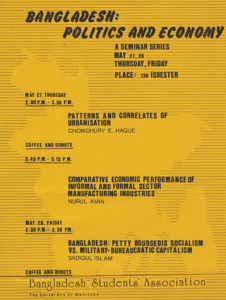
In the Fall, I slowly became part of the campus and the academic community, mainly through the vibrant Bangladesh Students Association (BSA). I attended monthly seminars hosted by BSA members in departments like Anthropology, Economics, Geography, and Sociology. The seminar topics were mostly on development issues in Bangladesh. The BSA seminars were attended by students and faculty members as well, particularly those interested in development studies. Compared to other student associations on campus, the BSA was academically and socially active.
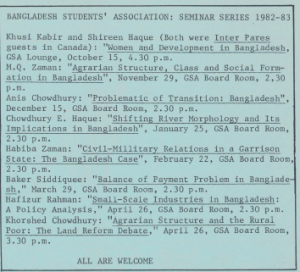
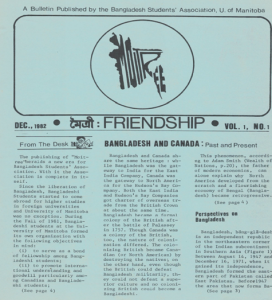

The Bangladesh immigrant community was made up of physicians, engineers, and academics. We often got together at Dr. Mujib and Ferdous Bhabi’s house on various occasions like Christmas, Eid, and New Year. Both were super generous hosts. Also, remember Dr. Sharif and our trip to Lake of the Woods in his cottage in Ontario. The weekends were mostly booked with dinners and parties hosted by students, professors, and Bangladeshi community members.
During my first summer, although it may sound strange, I wore a fancy light pink British winter coat that my mother gifted me. I found the summer weather in Winnipeg was cooler than winter in Bangladesh. I had never seen snow, let alone the variations of snow such as flurries, flakes, snow rain, and so on. The Winnipeg winter was an ordeal, especially the bitter cold, blizzard, and snowstorm. This was particularly difficult for me waiting at bus stops without shelters or transferring between two buses to and from the University campus to the Univillage, a graduate students’ co-op residence, on Dalhousie Drive, where many Bangladeshi and international students lived. There was a study area on the third floor, a Day Care and a laundry room in the basement, an ideal residence for students.
Graduate Programmes
Once settled, I began to look at the courses for the upcoming academic session. The Department offered both half one-semester and full two-semester graduate courses. In my first year, I took two full courses: Leadership and Communist Political Systems. I was assigned to work as a Teaching Assistant for my supervisor Merik Debicki. As a Polish immigrant, Professor Debicki (it took me years to address a professor by the first name) was empathetic and asked me not to attend his first-year undergraduate lectures, only to mark essays and invigilate the exams. He advised me to put my soul into my graduate course work. I still attended his lectures, which was new to me even though I taught Political Science in Bangladesh. As a teaching assistant, I spent countless hours marking undergraduate essay papers and tried my best at the job. While invigilating an exam, I found several students had returned marked essays requesting Merik to review my assigned grades. Without any consultation with me, Merik reviewed the papers, and concluded that his TA had assigned higher grades than he would have. I felt gratified as this helped save me from undue stress. It took me years to understand that students have every right to challenge a grade. Throughout the MA programme in Political Studies, my supervisor guided my academic programme with few flaws, although he did seem quite unorganized.
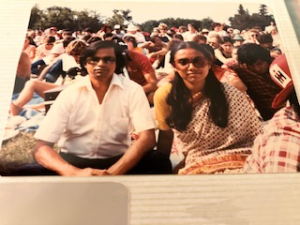
To support me during the first academic term, Zaman signed up for the Political Studies Leadership course, which was held from 7 pm to 10 pm. In Winnipeg, 10 pm in winter seemed midnight! Riding a bus and taking a long walk from the bus stop to our residence was always a challenge for me as a woman, particularly coming from Bangladesh where I grew up ‘protected.’ One evening there was a snowstorm warning, which made me terrified. I convinced Zaman that we check with the professor whether the class would be cancelled. Professor Geoff Lambert, a British by origin, laughed at us due to our concerns, and told us that he would hold the class, but it might be dismissed earlier if the weather turned ugly. The course Communist Political Systems disappointed me, as the professor had advanced extreme right-leaning analysis. It was a course for bashing communist political systems. For major research essay, I wrote a paper titled ‘Demaoization: China after Mao.’ My conclusion was that despite liberalization, the legacy of Mao in China would continue, which the professor found unacceptable. Consequently, the final grade was affected.
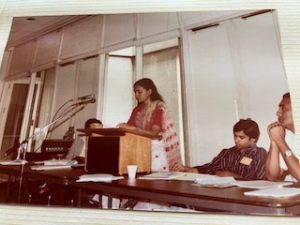
Once the academic session was over, both of us went to Harvard University to attend the 1982 Bengal Studies Conference, organized by Professor Hannah Papanek. We bought one month Greyhound ‘hop on and hop off’ bus passes to attend the meeting and to visit friends in the US. As we did not have enough money for hotels, we stayed with friends or families for a night or two on our way to Harvard. At the meeting, we met our professors from Dhaka University (Zillur Rahman Khan, M. Rashiduzzaman) and graduate students from Bangladesh and West Bengal. We met Professors David Kopf, Joanna Kirkpatrick, Ralph Nicholas, Peter Bertocci, Paul Greenough, and Eliot Tepper, who were familiar names in Bangladesh studies. Joanna Kirkpatrick, Zaman’s supervisor (1975-1977) at the Institute of Bangladesh Studies, University of Rajshahi, drove us to her Bennington College in Vermont. We stayed with her for a couple of days. I remember our breakfast with pancakes and the dinner at a mountain top restaurant in Bennington. We were really exhilarated with the Greyhound tours, which took us from Winnipeg to Minneapolis/St. Paul, Akron, Kent, Milwaukee, Chicago, Pittsburgh, New York, Boston, Vermont, Syracuse, Toronto, Ottawa, Thunder Bay, and then finally to Winnipeg in 30 days. We met with friends and colleagues at universities, both in the US and Canada. The tour was amazing; we enjoyed the scenic beauty and changing landscapes during the trip.
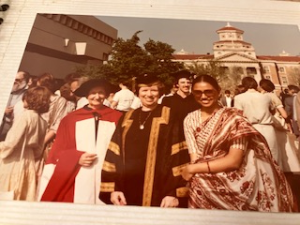
I completed my MA in 1983. There was no PhD programme in Political Studies. I switched to Anthropology for PhD with Professor Louise Sweet as my supervisor. In 1984, after I completed the required course work, I returned to Bangladesh with Zaman, who conducted fieldwork for his PhD Dissertation through a joint University of Manitoba and Jahangirnagar University Research Project, funded by the International Development Research Council (IDRC) in Ottawa. Louise and my PhD committee members allowed me to take this opportunity and advised to conduct my own independent field research in Bangladesh. Based on her fieldwork experience in Syria and Lebanon, Louise figured out that as a Muslim woman, it would not be easy for me to conduct fieldwork in rural Bangladesh without help from Zaman. After Louise retired in 1986, Professor Raymond Wiest, a committee member, became my supervisor. Ray was in Bangladesh with Zaman as his supervisor and a member of the Joint IDRC Project. Ray visited my study village, talked to the villagers, and passionately listened to their responses. Ray’s interest in my fieldwork and his advice inspired me to complete my research project on women and work in rural Bangladesh. Although Zaman was academically stronger due to his years of anthropological training and publications, Ray never compared me with Zaman, which helped to hold my own self-esteem. Without support from Louise and Ray, my PhD Dissertation would not have reached its completion!
Conferences and Meetings
During my days at the University of Manitoba, there were stimulating meetings and conferences that helped shape my own academic journeys. The University was known for some radical professors like Professors John Loxley, Jesse Vorst and others who were pro-workers and involved in advocacy to promote workers’ rights and social justice. In 1983, Marx’s Centennial Conference was held at the University of Manitoba. I attended the
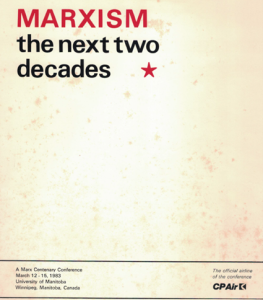
conference. In one of the sessions, I witnessed heated arguments between Kathleen Gough (1925-1990) and Hari Sharma (1934-2010) on the Cambodian ‘killing fields’ and the role of Pol Pot regime. The session was chaired by a Bangladeshi student, Anis Chowdhury, in his final stage of PhD (Economics), and included Tariq Ali and John Saul. Hari Sharma was critical of Kathleen Gough’s negative view of the Pol Pot regime. Kathleen Gough was well known to South Asian academics for her anthropological work on matriarchy and the Nair (Nāyar) in South India. In anthropology, Kathleen Gough was labeled the “Queen of South Asia” for her scholarship. I was familiar with her seminal work “The Origin of the Family,” recommended by Louise, a friend of Kathleen. Louise treated Kathleen and us, on behalf of the University, at a Japanese restaurant. This was my first exposure to a Japanese meal in a Japanese restaurant on the Pembina Highway. When I met Kathleen, she reminded me of the Queen of England, due to her attire, style, and conversation, which was sharply different from my own imagination of her. I later had learned from Louise how Kathleen was fired by Simon Fraser University (SFU) during the historic turmoil at SFU in the late 1960s.
I recall two public lectures by David Suzuki and Noam Chomsky, organized by the University of Manitoba Students Union, that profoundly influenced my thoughts in later years. Chomsky was like a living library, citing countless references to back up his lecture on the Palestine issue. David Suzuki, famous for his TV series ‘The Nature of Things’, spoke on global environmental issues and how to make the world a better place to live. The lectures were mind-blowing! In the summer of 1989, the University of Manitoba hosted the Bengal Studies Conference in collaboration with the Bangladesh Students’ Association and the Winnipeg Bengali community. Professor John Rogge, the Director of the Joint IDRC Project and Zaman were coordinators of the Bengal Studies Conference. The conference brought together many well-known scholars from North America, Bangladesh, and West Bengal for three days to discuss history, politics, and religion in Bengal, with particular focus on the Bangladesh economy and development challenges. The local Bengali-speaking community supported the conference in all possible ways, including a cultural show on the closing day. That same summer, Zaman got a teaching position in Anthropology at the University of Lethbridge in southern Alberta. We left Winnipeg in August 1989. Even today, Manitoba memories are still fresh in my heart.
________________________________________________________________________
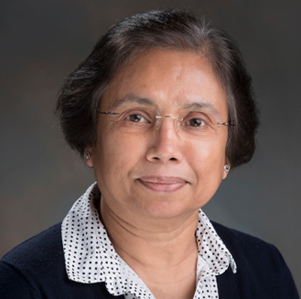
Habiba Zaman is Professor Emeritus in the Department of Gender, Sexuality, and Women’s Studies at Simon Fraser University (SFU), Canada. She served as an associate member of SFU Labour Studies Program and was an Acting Director of Labour Studies in Spring 2020. Habiba Zaman organized many conferences including Canada 150 Migration of Bengalis (2017) and Canadian South Asian Youth (2019). The journal Alternate Routes published her edited volume (co-editor Sanzida Habib) Migration of Bengalis to Canada: History, Settlement, Identity, and Activism (2019).
e-mail: habiba_zaman@sfu.ca
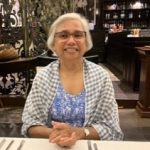
Habiba Zaman
Habiba Zaman is Professor Emeritus at Simon Fraser University. She was also an associate member of SFU Labour Studies Program. Professor Zaman is author of several books, journal articles, reports, and conference proceedings including Asian Immigrants in “Two Canadas”: Racialization, Marginalization, and Deregulated Work (2012; translated in Mandarin, 2021). She is a co-editor of Canada 150 Conference Proceedings on Migration of Bengalis (2018) https://doi.org/10.21810/sfulibrary.73. E-mail: habiba_zaman@sfu.ca
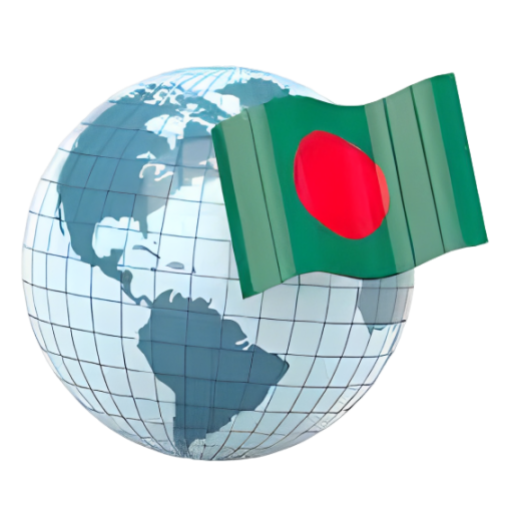




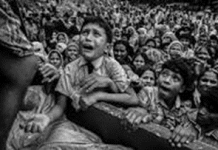

Wonderful to learn about your academic journey and successful career path in your field. Congratulations 💐
Very well written about the journey of academic life after reaching Canada and pursuing her course in higher education. It is an extremely successful experience of going through the process of fulfiling the needs and requirements of higher education,in the field of study Habiba aspired to do so. Congratulations on her great achievement!!
I’m very proud of you my dear friend. Wish you all the best in your lives. Stay healthy & happy. I’m so proud to be your friend.